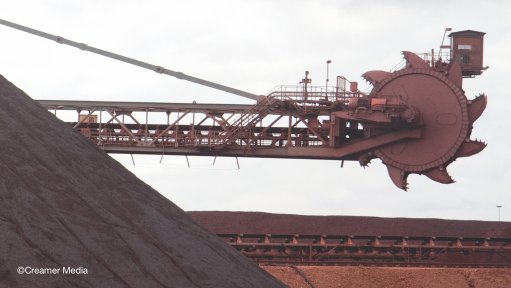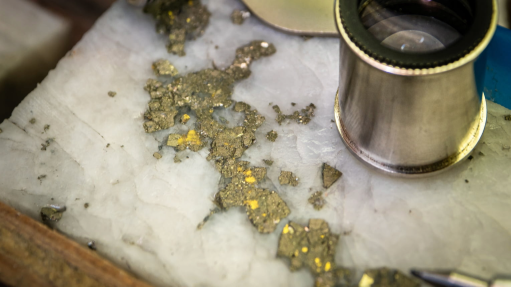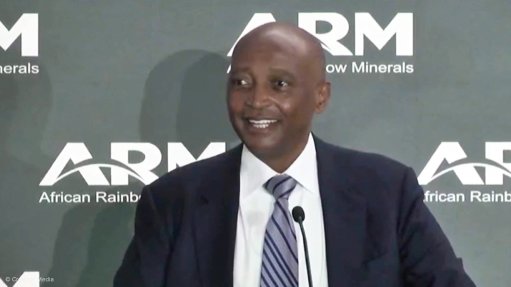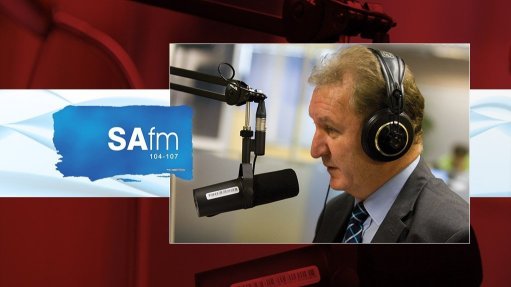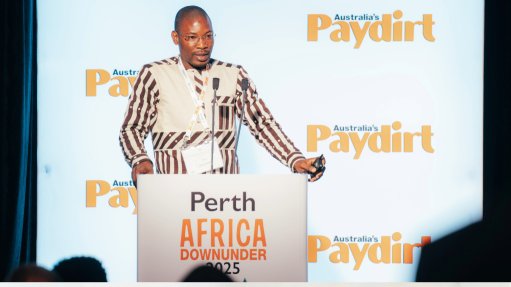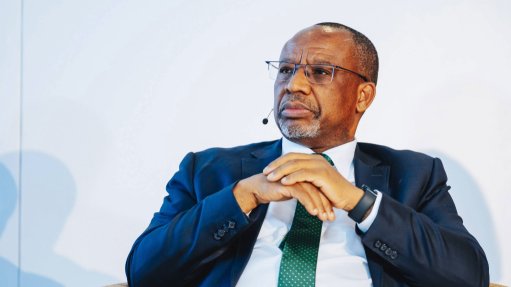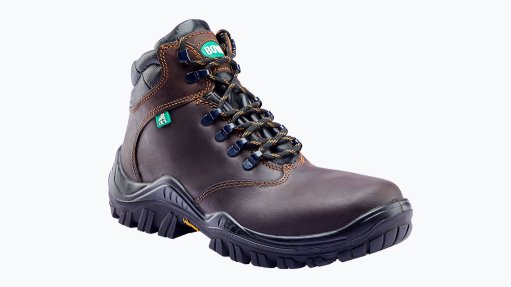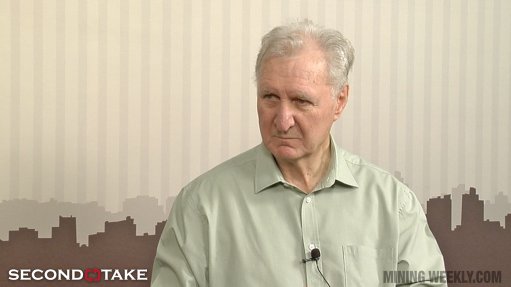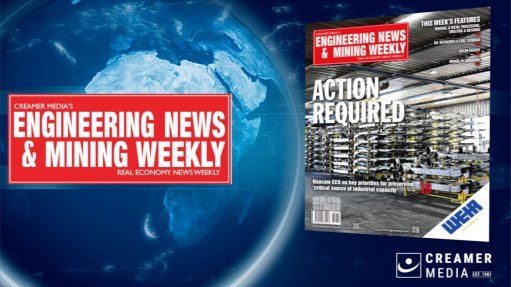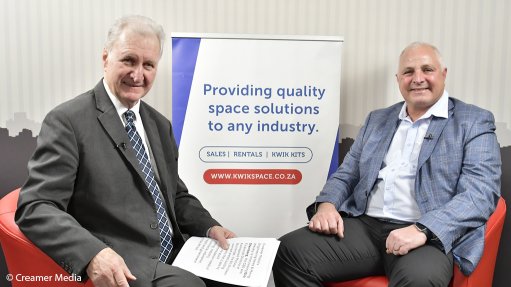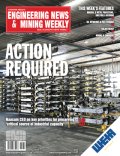Metro to expand Bauxite Hills operation
ASX-listed Metro Mining’s board has approved a final investment decision (FID), subject to financing, to expand the capacity of its Bauxite Hills mine, in Queensland, to 7-million wet metric tonnes a year for a capital expenditure (capex) of A$28.3-million.
The expansion will be financed from a combination of internal operating cashflow and external sources.
“This brownfield expansion is low risk and low capex,” Metro MD and CEO Simon Wensley said on Wednesday, adding that the approval for the expansion was underpinned by the securing of an additional 100% binding offtake agreement with aluminium producer Xinfa Aluminium Group for 2023 and 2024.
He further said that no additional traditional owner, environmental or regulatory approvals would be required as Metro already had the necessary approvals in place to mine up to 10-million wet metric tonnes a year.
The economics of the definitive feasibility study (DFS), which was completed by technical consulting firm MEC Mining, were calculated at a production and sales rate of 6-million wet metric tonnes a year over a 15-year mine life, which would deliver returns with a 10% net present value of $372-million, 78% internal rate of return, payback in two years and an average earnings before interest, taxes, depreciation, and amortisation margin of $83-million.
Further, unit operating costs were forecast to decrease by about 20% once Stage 2 was fully commissioned.
Metro said that, given what it believed was a strong market outlook, the expansion would provide flexibility to support upside spot demand as required while also reducing the implementation risk.
“Expanding to 7-million wet metric tonnes a year is perfectly timed to respond to bauxite market conditions expected to be very strong in the next few years,” Wensley said.
SECOND FLOATING CRANE BARGE
A key component of the expansion would involve the construction of a second floating crane barge (FCB) – at a much lower capital cost than the previously considered floating terminal – as well as its mobilisation to the Skardon river.
The second FCB will be nearly identical to the FCB procured in 2021 – TSA Skardon – which Metro believed would provide an opportunity to maximise synergy and operating and maintenance costs. The original FCB has been commissioned and is currently operating at a nameplate capacity of about 4-million wet metric tonnes a year on the Skardon river.
The previous crane was purchased on a substantially complete basis, which means that the new build option would allow Metro to include optimisation lessons from the first FCB such as services, accommodation and design elements fit for purpose for the Gulf of Carpentaria location.
However, owing to the elevated coal price, Metro advised that the market for trans-shipment assets was tight and that delivery could therefore take place 12 to 15 months from firm order placement.
Wensley explained that the choice to leverage Metro’s established experience with an FCB allowed for a more rapid, lower risk and lower cost implementation, as well as a significant operating risk reduction and improved synergy.
“The choice of a second FCB makes enormous sense given the experience we have gained and we expect to gain a number of operational efficiencies from running two floating cranes,” Wensley said.
Metro said that securing access to a new crane was essential for the commissioning of the second FCB by the end of the third quarter of next year. Metro had also obtained an extension of the working capital facility announced in April, which would enable it to secure a crane production slot, start the front-end engineering design, as well as the detailed design, and expand Metro’s engineering, procurement and construction management capability.
LAND AND WATER SUPPLY CHAIN ASSETS
The expansion would also entail the optimisation and upgrading of existing screening, conveying and barge loading facilities, as well as the upscaling of the current haulage and trans-shipment fleets.
The production and logistics chain at Bauxite Hills would be supplemented to ensure that mining and trans-shipment rates can match the increased loading capacity.
Modifications would be required at the port and barge loading facility. This would include the construction of a third screening plant, as well as the optimisation and upgrading of existing screening and conveyor assets to meet sustainable loading rates of 2 000 t/h.
Additional mobile fleet would also be added incrementally as required.
This would involve the replacement of the current haulage fleet with higher-powered Scania prime movers, which was not included in the DFS but would be funded through sustaining capital. This fleet would be enabled for next generation technology, which Metro would be exploring to improve productivity, fuel consumption and maintenance in 2023.
Moreover, six new B-trailers would be added to the trailer fleet to allow quad trailer haulage over the entire truck fleet.
Additionally, Metro would add a third tow tug and replace three 3 000 t barges with three 7 000 t barges. The PFS contemplated that the tug and barges would be supplied by the current trans-shipment contractor TSA. Metro would incur the mobilisation costs to site.
Comments
Announcements
What's On
Subscribe to improve your user experience...
Option 1 (equivalent of R125 a month):
Receive a weekly copy of Creamer Media's Engineering News & Mining Weekly magazine
(print copy for those in South Africa and e-magazine for those outside of South Africa)
Receive daily email newsletters
Access to full search results
Access archive of magazine back copies
Access to Projects in Progress
Access to ONE Research Report of your choice in PDF format
Option 2 (equivalent of R375 a month):
All benefits from Option 1
PLUS
Access to Creamer Media's Research Channel Africa for ALL Research Reports, in PDF format, on various industrial and mining sectors
including Electricity; Water; Energy Transition; Hydrogen; Roads, Rail and Ports; Coal; Gold; Platinum; Battery Metals; etc.
Already a subscriber?
Forgotten your password?
Receive weekly copy of Creamer Media's Engineering News & Mining Weekly magazine (print copy for those in South Africa and e-magazine for those outside of South Africa)
➕
Recieve daily email newsletters
➕
Access to full search results
➕
Access archive of magazine back copies
➕
Access to Projects in Progress
➕
Access to ONE Research Report of your choice in PDF format
RESEARCH CHANNEL AFRICA
R4500 (equivalent of R375 a month)
SUBSCRIBEAll benefits from Option 1
➕
Access to Creamer Media's Research Channel Africa for ALL Research Reports on various industrial and mining sectors, in PDF format, including on:
Electricity
➕
Water
➕
Energy Transition
➕
Hydrogen
➕
Roads, Rail and Ports
➕
Coal
➕
Gold
➕
Platinum
➕
Battery Metals
➕
etc.
Receive all benefits from Option 1 or Option 2 delivered to numerous people at your company
➕
Multiple User names and Passwords for simultaneous log-ins
➕
Intranet integration access to all in your organisation






